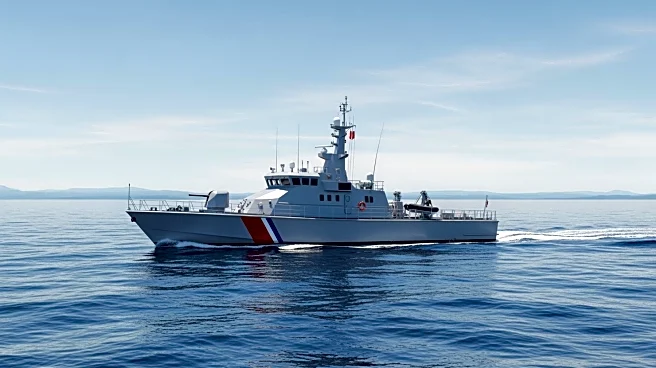What's Happening?
The United Nations human rights chief, Volker Türk, has condemned recent U.S. military strikes on vessels allegedly carrying drugs in the Caribbean and Pacific. Türk stated that these lethal attacks violate
international law and amount to 'extrajudicial killing.' Since early September, over 60 people have reportedly been killed in these strikes. President Trump has defended the actions, asserting they are necessary to prevent drugs from entering the U.S. and claiming legal authority to continue operations in international waters. The U.S. Secretary of Defense, Pete Hegseth, has described the targeted vessels as operated by drug-trafficking groups designated as terrorist organizations by the U.S. Despite acknowledging the challenges of drug trafficking, Türk emphasized that the circumstances of these strikes do not justify the use of lethal force under international law.
Why It's Important?
The U.S. strikes have sparked significant international controversy, raising questions about the legality and ethical implications of using military force in drug enforcement. The actions have heightened tensions between the U.S. and governments in the region, including Colombia and Venezuela, and have drawn criticism from members of Congress across party lines. The strikes have also prompted concerns from Mexican President Claudia Sheinbaum, who has called for diplomatic discussions and insisted on adherence to international treaties. The situation underscores the complex balance between national security interests and international legal standards, potentially impacting U.S. foreign relations and its approach to drug trafficking enforcement.
What's Next?
The UN has called for the U.S. to halt the strikes immediately and conduct independent investigations into the incidents. There is potential for diplomatic engagements between the U.S. and affected countries, as well as possible legislative scrutiny from Congress regarding the president's authority to order such strikes. The international community may continue to pressure the U.S. to align its drug enforcement strategies with international human rights laws, potentially leading to policy adjustments or increased diplomatic efforts.
Beyond the Headlines
The strikes highlight broader ethical and legal debates surrounding the use of military force in non-traditional security threats like drug trafficking. The situation may prompt discussions on the role of international law in governing state actions against non-state actors and the implications for human rights protections. Long-term, this could influence global norms and practices in addressing transnational crime and terrorism.









